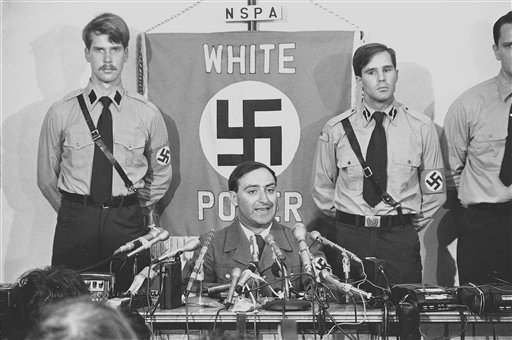One premise underlying First Amendment jurisprudence is the tolerance theory — the belief that promoting expressive freedoms will make individuals and institutions more open to ideas than they would be otherwise. The origin of this idea can be traced to John Stuart Mill’s On Liberty (1869). Mill’s essay is a defense of individual freedom over paternalism and of free thought over dogma and the tyranny of the majority.
Mill and Bollinger promoted tolerance theory
According to Mill, the free exchange of ideas should be encouraged to promote the discovery of the truth and enhance the cognitive faculties of individuals. In tolerating or permitting different views to challenge prevailing opinion, Mill argued that these ideas may be true, contain part of the truth, or in fact be true themselves. Hence, toleration and respect for a diversity of viewpoints is grounded in a utilitarian calculus that stresses that we are all better off in allowing a diversity of opinions rather than in censoring them.
Lee Bollinger has written a more modern expression of Mill’s views in The Tolerant Society: Freedom of Speech and Extremist Speech in America (1986). In that book Bollinger argues from a standpoint of tolerance in favor of protecting extremist speech. For example, tolerating extreme speech is important because by being protected itself, it provides a shield for more mainstream political discourse. In addition, toleration supposedly reduces racial and ethnic tensions, diminishes the perception that other individuals are threats, and encourages respect for the rights of others. Toleration thus helps to promote a stable and open society — an end good in itself — but it also makes individuals themselves open to new ideas and respectful of the rights of others.
Tolerance theory applied to First Amendment jurisprudence
Tolerance as a basic value of a democratic society translates both into a theory for First Amendment jurisprudence and for judicial review. In terms of a jurisprudential theory, tolerance suggests that Nazis should be permitted to parade down the streets of Skokie, Illinois, as in Collin v. Smith (7th Cir. 1978), even though the community is populated with survivors of the German Holocaust. The reasoning is that protecting the speech of a Nazi group shields other forms of political expression.
Tolerance also suggests that the right to criticize public officials should be encouraged, even if some factual errors permeate the comments, such as in New York Times Co. v. Sullivan (1964), in order to promote open and free inquiry.
Finally, limits on prayer or religious displays in public schools are needed, such as in Engel v. Vitale (1962) and Abington School District v. Schempp (1963), to foster religious tolerance. Overall, toleration theory dictates limits on the censorship of speech and support for either religious pluralism or neutrality.
Tolerance theory suggests courts strike down censorship laws
In terms of a theory of judicial review, tolerance theory suggests that the courts operate as guardians of the First Amendment, striking down censorship laws — practices that lead to the state endorsement or favoritism of a specific religion. Tolerance is but one of several important theories justifying protection of expressive freedoms.
Other theories argue that the purpose of the First Amendment is to promote self-expression or to foster democracy. Tolerance theory seems more encompassing in that it seems to explain the importance of free expression by way of its importance to both democracy and self expression.
This article was originally published in 2009. David Schultz is a professor in the Hamline University Departments of Political Science and Legal Studies, and a visiting professor of law at the University of Minnesota. He is a three-time Fulbright scholar and author/editor of more than 35 books and 200 articles, including several encyclopedias on the U.S. Constitution, the Supreme Court, and money, politics, and the First Amendment.

